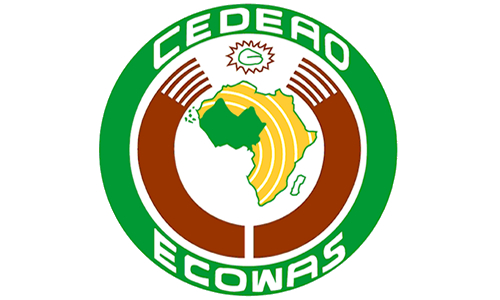 The 46th ordinary meeting of the Mediation and Security Council of the Economic Community of West African States (ECOWAS) has opened in Accra.
The 46th ordinary meeting of the Mediation and Security Council of the Economic Community of West African States (ECOWAS) has opened in Accra.
The meeting, which is being held at the ministerial level, is the first of the mid-year statutory meetings of ECOWAS.
The Minister of Foreign Affairs and Regional Integration, Ms Shirley Ayorkor Botchwey, who opened the meeting yesterday, said the social and economic crisis in Mali would be among issues to be discussed.
Ms Botchwey, who is also the Chair of the Mediation and Security Council, said the implementation of decisions taken at the extraordinary summit in Accra on May 30, this year would be critical to bringing stability to Mali and West Africa.
Agenda
The minister said members of the council would be updated on the implementation of a national early warning centre which was scheduled to be based in Accra and the humanitarian situation in the region.
“Our meeting is tasked to deliberate on critical issues such as the political and security situation in our region, with the objective of making recommendations for the consideration of the Authority of Heads of State and Government,” she said.
Ms Botchwey said the meeting was taking place against the backdrop of converging potentially existential threats to the peace and development of West Africa, which she said could undermine regional integration efforts.
For instance, she said, attacks by terrorists and extremist groups were worsening and cascading across the region, leaving no country out as a potential target.
The COVID-19 pandemic, she said, had also added a new layer of complexity to the already fragile situation in the region and was threatening social cohesion, the welfare of citizens and economic recovery.
Challenges
Ms Botchwey said the region was still facing challenges of insecurity, including increasing terrorist attacks, in spite of some actions by member countries to stem the tide.
“From the Sahel region through the Lake Chad Basin, attacks from terrorists and violent extremists have morphed, with banditry, kidnapping, farmer-herder dynamics and transnational organised crimes leaving a trail of deaths, destruction, despair and fear among our populations.
“This is particularly the case in the frontline states of Burkina Faso, Mali, Niger and Nigeria where these deadly attacks have occurred. No member state is spared as a potential target,” she said, adding: “The recent attack in Burkina Faso, which led to 132 deaths among the civilian population, including children, is the latest example of this situation.”
She said the terrorist groups were currently testing the border defences of coastal nations, with a view to extending their reach to member states along the Gulf of Guinea.
“Meanwhile, the Gulf of Guinea itself has recorded the highest incidents of piracy and related maritime criminality.
“The evolving developments in Chad, which straddles the Lake Chad Basin and the G5-Sahel countries, and recent developments in Mali could add an aggravating element to the security situation facing the region,” Ms Botchwey added.
Democracy
Regarding the state of democracy and good governance in the region, the minister said West Africa had made measurable improvement in democracy with the successful conduct of elections in some member states.
“Despite the challenges and restrictions necessitated by the COVID-19 pandemic, the region managed to maintain the calendars of the constitutionally mandated electoral processes,” she indicated.























